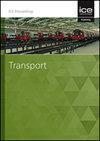BN与遗传算法在建筑施工安全评价中的应用
IF 1
4区 工程技术
Q4 ENGINEERING, CIVIL
Proceedings of the Institution of Civil Engineers-Transport
Pub Date : 2023-10-23
DOI:10.1680/jsmic.22.00034
引用次数: 0
摘要
由于在快速发展的行业中,建筑工地的安全问题日益普遍,因此开发建筑安全评估模型至关重要。因此,本研究将克隆遗传算法(CGA)和贝叶斯网络(BN)集成到现有的建筑施工BIM技术中,建立建筑施工综合安全评价模型。为了建立一个评估建筑安全的框架,该研究首先通过先进的进化算法过滤影响建筑安全的因素。然后,利用贝叶斯网络来理解模型的结构和参数。与反向传播神经网络(BPNN)模型和遗传算法(GA)优化的神经网络模型相比,CGA-BPNN模型的网络训练误差约为0.09%。此外,观察到目标误差值在0.02%左右,CGA-BPPN模型的遗传交叉概率为0.6629。结果表明,该算法误差小,训练时间合适,具有较高的准确率。CGA-BPNN模型对贝叶斯网络中的评价指标进行过滤,并赋予适当的权重,以准确评估建设项目的安全状态。本文章由计算机程序翻译,如有差异,请以英文原文为准。
Application of BN and genetic algorithm in building construction safety evaluation
Developing a safety evaluation model for construction is of utmost importance due to the increasing prevalence of safety issues on construction sites in a rapidly growing sector. Consequently, this research integrates Clonal Genetic Algorithm (CGA) and Bayesian Network (BN) into the current BIM technology for building construction to establish a comprehensive safety evaluation model for building construction. To develop a framework for assessing building safety, the study initially filters the factors impacting building safety through an advanced evolutionary algorithm. Subsequently, a Bayesian network is employed to understand the structure and parameters of the model. When compared to both the backpropagation neural network (BPNN) model and the genetic algorithm (GA) optimized neural network model, the CGA-BPNN model showed a network training error of approximately 0.09%. Additionally, the target error value was observed to be around 0.02%, and the genetic crossover probability of the CGA-BPPN model amounted to 0.6629. These results indicate small algorithm error and appropriate training time of the model, as well as higher accuracy. The CGA-BPNN model filters the evaluation indexes in the Bayesian network and assigns appropriate weights to accurately assess the safety status of the construction project.
求助全文
通过发布文献求助,成功后即可免费获取论文全文。
去求助
来源期刊
CiteScore
2.60
自引率
0.00%
发文量
42
审稿时长
5 months
期刊介绍:
Transport is essential reading for those needing information on civil engineering developments across all areas of transport. This journal covers all aspects of planning, design, construction, maintenance and project management for the movement of goods and people.
Specific topics covered include: transport planning and policy, construction of infrastructure projects, traffic management, airports and highway pavement maintenance and performance and the economic and environmental aspects of urban and inter-urban transportation systems.

 求助内容:
求助内容: 应助结果提醒方式:
应助结果提醒方式:


